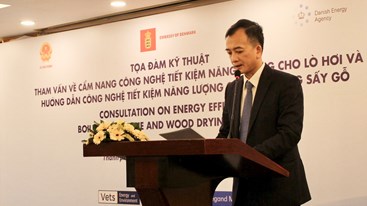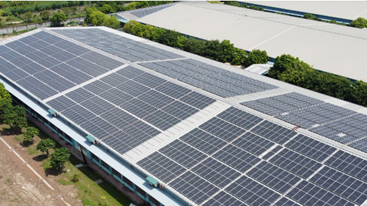Saturday, 04/05/2024 | 15:40 GMT+7
The accords, disclosed late Friday following months of negotiations, would save around Eur1.3 billion ($1.6 billion) between now and January 1, 2013 largely through a 35% cut for the wind energy sector over the 30-month period.
On the solar thermal side, new plants will be subject to a tariff-premium moratorium during the first year of operation, while an undisclosed number of projects are to experience development delays so as not to overburden the system.
Additionally, for both the wind and solar thermal sectors, a cap is to be placed on the number of hours that an existing installation will be eligible to receive special tariff premiums.

This agreement ensures the openness and stability of the regulatory framework and will generate electricity bill savings over the short term, Protermosolar said in a statement.
Hiệp hội quang điện trong một tuyên bố cho biết thỏa thuận
này đảm bảo sự cởi mở và ổn định của khuôn khổ pháp lý và sẽ tạo ra các khoản
tiết kiệm hóa đơn điện trong ngắn hạn.
The Spanish government has long-struggled to deal with a mounting tariff deficit, the difference between costs and income in the regulated market, a problem mostly of its own making and largely due to its generous support system for renewable energies.
Last year, the deficit totaled Eur6.9 billion, with Eur4.7 billion attributable
to renewables, Eur1.1 billion more than anticipated.
Analysts were in general agreement that the new agreements would have only a very small impact on companies with exposure to the wind and solar thermal sectors.
They pointed out that the new agreement puts a cap on the number of hours that the wind farm sector operates in order to receive a premium from the government. If total installed capacity in wind operates more than 2,350 hours in a single year then any plant exceeding this average by 10% (or above 2,589 hours) will not receive a premium above the wholesale price for extra hours.
However, analysts noted that the wind industry has yet to operate for more than 2,350 hours in a single year, so the cap "is virtually a non-event," one analyst said.
Furthermore, the 35% cut in premiums for wind farms only affects those built after January 1, 2008 and the premium will only be cut until January 1, 2013.
According to one analyst around 80% of wind power generation units were installed
before 2008, meaning that the effect of the premium cut will be fairly
negligible.
As yet no agreement has been reached between the government and the solar PV sector, though the fairly soft approach taken by the government to the wind sector opens up the possibility of steep cuts in tariffs for the PV sector.
In June, a source at the Spanish Photovoltaic Industry Association told Platts that the government was investigating the potential for cuts of 25% in existing subsidies for small scale roof installations and a 45% cut for new large scale plants.
businessweek.com








.jpg?w=367&h=206&mode=crop) Energy efficiency and conservation usage is an important aspect of the national energy development strategy
05/03/2024
Energy efficiency and conservation usage is an important aspect of the national energy development strategy
05/03/2024
 Challenges and Opportunities to promote energy efficiency market in Vietnam
Challenges and Opportunities to promote energy efficiency market in Vietnam
 The Ministry of Industry and Trade requests government agencies to coordinate in organizing Earth Hour 2024
The Ministry of Industry and Trade requests government agencies to coordinate in organizing Earth Hour 2024
 Consultation on Energy Efficiency Boiler Catalogue and Wood Drying Guideline
Consultation on Energy Efficiency Boiler Catalogue and Wood Drying Guideline
 Son Ha Co., Ltd, applies energy efficiency and conservation measures
Son Ha Co., Ltd, applies energy efficiency and conservation measures
.png?w=367&h=206&mode=crop) Request for expression of interest - C2.1.13: Capacity Building on energy efficiency policies development
Request for expression of interest - C2.1.13: Capacity Building on energy efficiency policies development
 Phuc Kien Co., Ltd., is effectively implementing energy-saving measures
Phuc Kien Co., Ltd., is effectively implementing energy-saving measures
 Request for expression of interest - C2.1.12: Independent monitoring of safeguards implementation
Request for expression of interest - C2.1.12: Independent monitoring of safeguards implementation